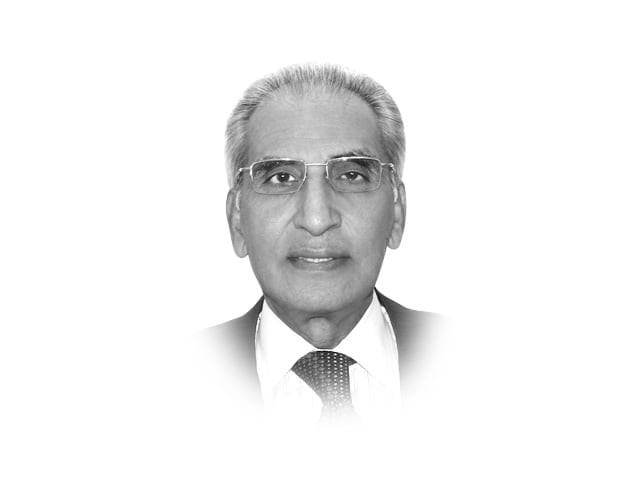Echoes of the past
It is a misperception that Liaquat Ali Khan's failure to visit Soviet Union brought Pakistan into US camp in Cold...

Echoes of the past
Whatever the reasons — whether it was Moscow’s unhappiness with our responses to its economic cooperation proposals, or the continuing misgivings about our commitment to anti-terrorism efforts, or whether a neighbour of ours played a role in it — the truth will remain a mystery.
Putin’s aborted visit did, however, recall another similar episode that has become part of folklore. This relates to the widely held perception that Prime Minister Liaquat Ali Khan failed to respond to an invitation to visit the Soviet Union, instead opting to travel to Washington. This allegedly brought Pakistan into the US camp in the on-going Cold War and initiated decades of mistrust between Pakistan and the Soviet Union.
My postings in Moscow and long association with the Soviet desk in Islamabad, led me to explore the genesis of this widely-held belief. I was encouraged to do so by Foreign Minister Agha Shahi. Briefly, the records revealed that the Soviet Union’s first intimation of an invitation was made orally on June 2, 1949, by the Soviet charge d’affaires (CDA) in Tehran to Ambassador Ghazanfar Ali Khan, who conveyed it to the prime minister, while pointing out that “it came after the US president’s invitation to Prime Minister Jawaharlal Nehru”. The invitation was accepted within a week and its announcement created quite a stir in London and Washington.
Since Moscow had suggested the prime minister’s arrival on August 15, it was pointed out that his absence on the nation’s Independence Day would not be appropriate. His preference, therefore, would be to leave Karachi the next day and, transiting through Tehran, arrive in Moscow on August 17. The Soviets responded only on July 28, but suggested that the visit be postponed to end of October or early November, as August was a holiday season in the country. Pakistan conveyed its acceptance of the new dates and proposed November 5. However, on August 14, our ambassador in Tehran was informed by the Soviet CDA that Moscow was now of the opinion that the visit be organised after establishment of formal diplomatic relations and posting of diplomatic representatives. Moscow was told that Pakistan was already in the process of identifying a suitable candidate to head our mission in Moscow. Mr Shuaib Qureshi was thereafter designated to be our first ambassador to Moscow.
Correspondence between the two capitals indicate diminishing interest by the Soviets in the prime minister’s visit, as they not only took a long time in according agre’ment to Mr Qureshi, but showed no interest in posting their own ambassador to Pakistan. Soon thereafter, the Soviet ambassador in New Delhi suggested another postponement.
In the meantime, the Indian press carried a number of stories indicating Moscow’s declining interest in Liaquat’s visit, while in Pakistan, a lobby led by Ghulam Mohammad openly began questioning the wisdom of good ties with the Soviet Union. Even after the US extended an official invitation to Liaquat, the latter instructed that the Moscow visit be pursued and in April, 1950, Ghazanfar Ali raised this issue again with the Soviet CDA. Liaquat’s seriousness about the Moscow visit is evident from the fact that even the official entourage was finalised. Incidentally, it included a Major Yaqub Khan, who was to later become ambassador to Moscow and also a most distinguished foreign minister.
This was a time when Cold War considerations were paramount in identifying potential friends and foes, with invitations used to extend influence in critical areas of the globe. Did the US and the Soviet Union engage in invitation diplomacy primarily to woo India? We may never know till Moscow opens up its archives. In any case, as Sir Winston Churchill stated as far back as 1939, Russia “is a riddle wrapped in a mystery inside an enigma”.
Published in The Express Tribune, October 3rd, 2012.














COMMENTS
Comments are moderated and generally will be posted if they are on-topic and not abusive.
For more information, please see our Comments FAQ